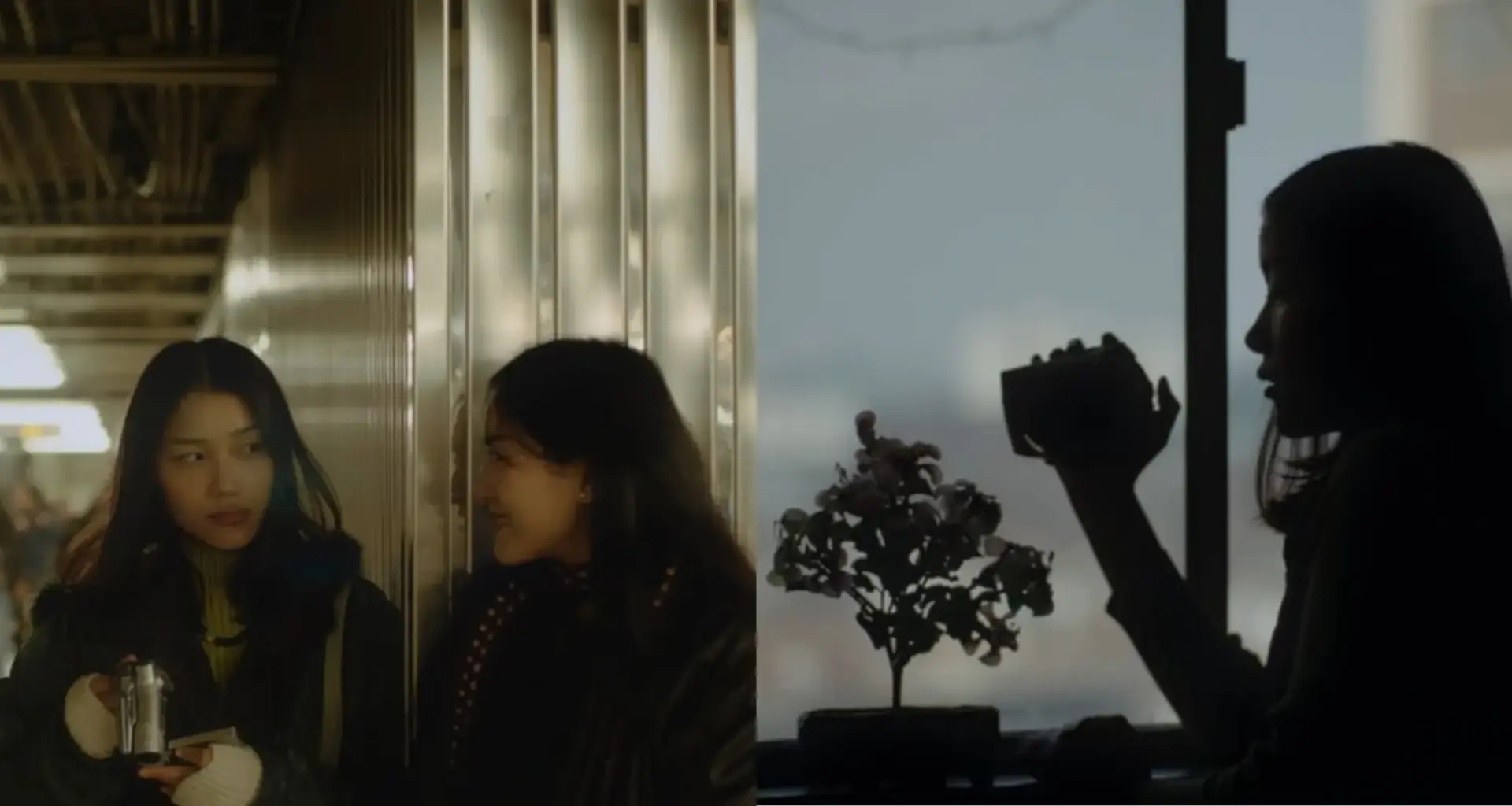RATING: ⭐️⭐️⭐️⭐️/5
This article contains spoilers for the film 100 Sunset.
Communal, cultural, enigmatic, expansive, voyeuristic, resonant, and referential. Kunsang Kyirong’s debut feature 100 Sunset made its world premiere at the Toronto International Film Festival (TIFF) on Sept. 6, offering a nostalgic and artistic mediation on the complexities of identity, interconnection, and time – or lack-thereof.
Tibetan-language and Parkdale-inspired films are a rare sight internationally, and when Kunsang Kyirong – a Tibetan-Canadian director – took the stage before the screening to thank her crew, cast, and culture, the need for more films that celebrate distinctive cultural experiences and elevated artistic expression became all-the-more clear.
If you were expecting an explosive climax, then you may be pleasantly surprised by the eerie, unexplained tension that gradually builds between the protagonist and her surroundings. It is a quiet and strange discomfort that lingers throughout the film, drawing viewers in without necessarily needing a dramatic payoff.
New to me, yet refreshing.
At the heart of 100 Sunset is Kunsel (Tenzin Kunsel), an aloof, quiet, teenage kleptomaniac living in a secluded community of Tibetan expats, one that seems confined to the beige walls of a Toronto Parkdale apartment complex located at the aforementioned address.
Living with her aunt and uncle, Kunsel’s life is one of routine, revolving around the ebb and flow of daily existence. It is when she decides to venture beyond the confines of her home, armed with a newly stolen treasure — an old camcorder — that the city opens up before her. Toronto’s bustling streets, defined architecture, transportation system, and intricately woven tapestry of culture all come alive, offering her a glimpse into the world outside of the beige walls, and beyond herself.
It is here that Kunsel’s growing, intrusive fascination with her lively, pretty, and free-spirited new neighbour, Passang (Sonam Choekyi), begins to take root. A fast-developing bond forms between the two, who connect over a shared yearning for cheeky adventures and a life beyond the ordinary.
The pair spend their days lost in the city’s endless wonders, each other’s company, and the thrill of uncharted possibilities – with Passang passively and actively becoming Kunsel’s videographic muse. But the shared sense of a newly imagined reality begins to fade away like a forgotten snapshot when the weight of tradition clashes with the pull of their modern desires.
In a communal board game room, a monthly event – a dhikuti – takes place, where each household contributes to a collective pot of money that is rotated monthly, providing temporary financial relief to each participant. This high-stakes exchange, and the film’s greatest tension, ties into themes of intimacy, distance, desire, deceit, memory, mystery, and trust, which frequently emerge in abstract forms.
Director Kunsang Kyirong’s use of voyeurism as a central motif is not just thematic, but also visual – through still, flat, aerial, proximate, roving, out-of-frame, and distant shots.
Working with cinematographer Nikolay Michaylov, Kyirong crafts a sophisticated, visually rich style that transforms Parkdale’s architecture – warm, chocolate-brown and neutral yellow bricks that mark its age and history, stark black balconies that lend a raw, utilitarian feel, and blaring red trim that contrasts against the muted tones of the exterior – into intimate portals for the characters’ internal lives.
The apartment building in the film almost feels like another breathing entity, as its worn-down charm mirrors Kunsel’s own sense of isolation and connection. The framing of shots, often through windows and doorways, emphasizes the labyrinthine nature of the building, where people live side by side but remain emotionally distant.
As Kunsel observes her surroundings through the camcorder and these physical gaps, the audience is drawn into the world of 100 Sunset, where nostalgia, memory, secrecy, and the boundary between privacy and public curiosity rest on what is seen – and what remains unseen.
Kyirong eloquently weaves a tapestry of traditional Tibetan celebration, dress, food, rituals, and gatherings into the film’s backdrop, offering an in-depth look at this seldom cinematized cultural community in Toronto.
And there is something comforting about seeing a familiar, often overlooked location on the big screen. Watching Kunsel and Passang frolic at Bloor-Yonge station and hearing “if you see something, say something” brought a smile to my face – like Kunsel, my perspective was reimagined through a view that had perhaps previously gone unseen.
Kyirong proves herself an intriguing filmmaker with 100 Sunset, depicting a gravitation toward eclectic cinematography, slower pacing, fearless experimentation, elusive storytelling, and the unspoken. The camcorder, in all of its mysteriousness, evokes a sense of watching, longing, and the fragile threads that bind communities together. This slow burn, while atypical to some, offers a secret passageway into the lives and stories of communities untold.

